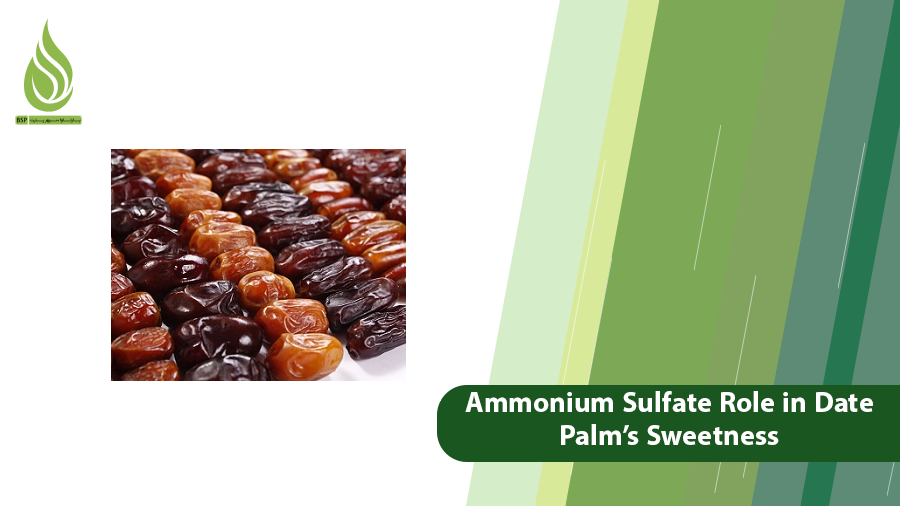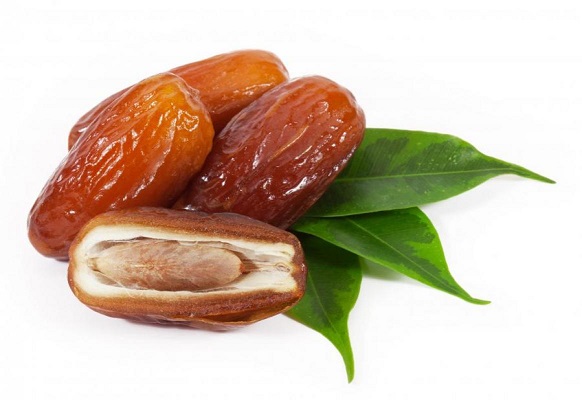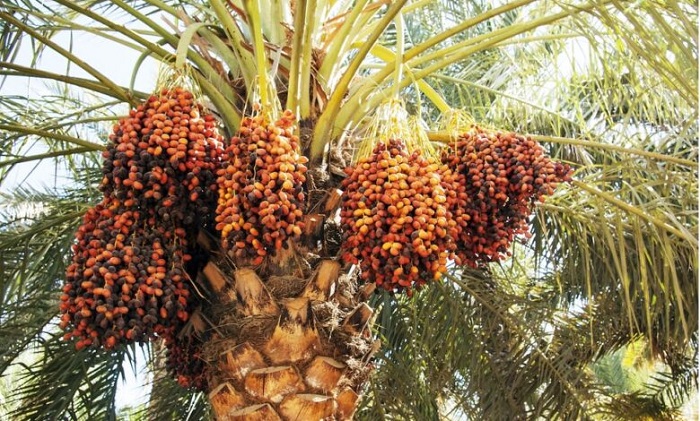
Ammonium Sulfate Role in Date Palm Fruit’s Quality and Sweetness
Ammonium sulfate, a widely used nitrogen fertilizer, plays a critical role in the growth and productivity of date palm trees. By supplying essential nitrogen and sulfur, this fertilizer enhances the quality and sweetness of date fruits. In this article, we explore how ammonium sulfate contributes to improving date palm yield and fruit sweetness. Let’s dive into the details.
What Is Ammonium Sulfate and Why Is It Important in Agriculture?
Ammonium sulfate is one of the most commonly used chemical fertilizers in agriculture, containing approximately 21% nitrogen and 24% sulfur. Beyond providing plants with necessary nitrogen, its sulfur content significantly improves the quality of agricultural products. In key date-producing regions like Egypt, Saudi Arabia, Algeria, and Iran, ammonium sulfate is extensively used to boost date yield and enhance fruit sweetness.
While a previous article explored the impact of ammonium sulfate on date palm growth, this piece focuses specifically on how it improves the quality and sweetness of dates.
Key Nutrients for Date Palms: Nitrogen and Sulfur
Date palms require two essential nutrients for optimal growth: nitrogen and sulfur. Here’s how they contribute:
- Nitrogen: Promotes vegetative growth, enhances leaf greenness, and increases the number of fruit clusters, leading to higher yields.
- Sulfur: Plays a vital role in protein formation, enzyme activity, and sugar synthesis. The sulfur in ammonium sulfate also improves soil structure and enhances the uptake of other essential nutrients.
Additional benefits of ammonium sulfate for date palm orchards include:
- Increased yield and productivity
- Improved fruit color
- Adjusting soil pH in alkaline soils that facilitates better nutrient absorption
- Enhanced plant resistance to pests and diseases
How Ammonium Sulfate Boosts Date Sweetness
One of the primary reasons for using ammonium sulfate in date palm cultivation is its direct impact on increasing the sugar content and sweetness of dates.
Nitrogen’s Role in Sugar Production
Nitrogen is a critical element for sugar production in plants. It supports photosynthesis, which drives the production of carbohydrates, including sugars. By supplying nitrogen, ammonium sulfate increases the sugar content in date fruits, resulting in sweeter, more flavorful dates.
Sulfur’s Impact on Sweetness and Quality
The sulfur in ammonium sulfate activates enzymes involved in sugar synthesis. Dates from trees treated with ammonium sulfate tend to have a sweeter taste, better aroma, softer texture, and longer shelf life. This is largely due to sulfur’s role in enhancing enzyme activity, which directly contributes to the formation of sugars in the fruit.

Key Point: Sulfur activates enzymes that are essential for sugar synthesis, leading to tastier and higher-quality dates.
Comparing Ammonium Sulfate to Other Nitrogen Fertilizers
Other nitrogen-based fertilizers, such as urea and ammonium nitrate, also supply nitrogen to plants. However, if we compare ammonium sulfate and urea, ammonium sulfate stands out as a more comprehensive option for date palm orchards. Here’s a comparison:
- Urea: While urea provides nitrogen, it lacks sulfur, making it less effective at enhancing date sweetness. Additionally, excessive or uncontrolled use of urea can increase soil salinity, which is a concern in date palm orchards, as these soils are often prone to salinization.
- Ammonium Nitrate: This fertilizer is quickly leached from the soil, making it less persistent in date palm orchards compared to ammonium sulfate. It also lacks sulfur, limiting its impact on fruit quality.
- Ammonium Sulfate: Offers both nitrogen and sulfur, reduces soil pH in alkaline conditions, and is better suited for date palms. It is a more complete and cost-effective choice for growers.
In summary, ammonium sulfate’s dual nutrient profile and soil-improving properties make it a superior choice for date palm cultivation.
Optimal Timing for Applying Ammonium Sulfate
The best time to apply ammonium sulfate to date palms is late winter to early spring (February and March). During this period, date palms emerge from winter dormancy and begin active growth. For even better results, growers can split the application into two stages: half in mid-spring (around May) and the other half in late winter or early spring (February or March).
Methods of Applying Ammonium Sulfate in Orchards
Ammonium sulfate can be applied to date palms using several methods, depending on the orchard’s needs and infrastructure:
Surface Broadcasting
In this method, granular or powdered ammonium sulfate is evenly spread across the soil surface. This approach ensures uniform distribution and is suitable for large orchards.
Chalking (Localized Application)
Chalking involves placing the fertilizer in small pits or trenches about 1.5 meters from the tree trunk and 30 centimeters deep. This method is highly effective for fruit trees like date palms, as it delivers nutrients directly to the root zone. Granular ammonium sulfate is the preferred form for the drill-hole method. High-quality granular ammonium sulfate can be sourced from reputable suppliers like Barsava Sepehr Part. For smaller quantities, local agricultural supply stores are a good option, while bulk purchases for large orchards can be made through trusted suppliers.
Fertigation (Application with Irrigation)
In fertigation, ammonium sulfate is dissolved in water and applied through irrigation systems. Crystalline ammonium sulfate is ideal for this method due to its solubility.

Important Considerations for Using Ammonium Sulfate
To ensure optimal use of ammonium sulfate, consider the following guidelines:
- Dosage: The amount of ammonium sulfate to apply depends on the tree’s age, soil type, and local climate conditions. Conduct annual soil tests to determine the soil’s nutrient needs, including nitrogen, sulfur, and potassium. Consulting with agricultural experts can also help determine the appropriate dosage.
- Soil pH: Ammonium sulfate is particularly effective for alkaline soils with high pH and low nitrogen levels, as it helps lower soil pH and improves nutrient uptake.
- Irrigation: After applying ammonium sulfate, ensure adequate irrigation to dissolve the fertilizer and facilitate absorption by the roots.
- Avoid Overuse: Excessive application can harm trees and contribute to environmental pollution. Always base fertilizer application on soil test results and actual nutrient requirements.
- Acidic Soils: Continuous use of ammonium sulfate is not recommended for acidic soils, as it may lower the pH too much and negatively affect soil health.
By following these guidelines, growers can maximize the benefits of ammonium sulfate while minimizing potential risks.
Conclusion
Ammonium sulfate is a powerful tool for date palm growers, offering a unique combination of nitrogen and sulfur that enhances both yield and fruit quality. Its ability to increase sugar content and improve sweetness makes it a preferred choice for producing high-quality dates. By applying it at the right time and using appropriate methods, growers can achieve better fruit color, flavor, texture, and shelf life, while also improving soil health and plant resilience. For optimal results, always tailor application rates to soil conditions and consult with experts to ensure sustainable and effective fertilization practices.